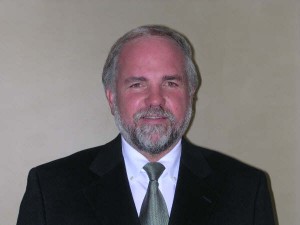Special to the Financial Independence Hub
Do you talk with your kids about money matters? Are you preparing them to handle the financial decisions and responsibilities they will face in their lives? Do you get a sense that your kids are getting the financial knowledge, or developing the financial skills, in school that they will need in life? Or do you know much at all about what your kids know about money – and how they make financial decisions>
If you are like many parents today, the answers to those questions may not be very encouraging. In this day and age, with money matters so dominant in so many peoples’ lives, it almost seems surprising to have to advocate for talking with our kids about money to help them prepare for their financial futures. But that is what we — The Canadian Foundation for Economic Education (CFEE) and BMO Financial Group — are doing with the Talk With Our Kids About Money Day program, which happens today (Wed., April 15th). We are encouraging and helping parents and teachers to talk with our kids about money.
Early days for school-based Fin Lit
Surveys show that many parents are not talking about money with their kids – and often lack feelings of confidence and competence to do so. And we are still at the early stages of integrating financial education into our school programs. But it is so important that our kids are well prepared for their financial futures – and talking with them about money can help. And they want to learn. If you haven’t had a chance to see that, just start talking and it will quickly become evident. And, if you need help getting the conversations started, check out the resources and fun activities available at www.talkwithourkidsaboutmoney.com – all organized by the age range of your child.
Maybe you are wondering what to talk about. If so, consider the following as possibilities. Once you start thinking – and once you start talking – the kids will probably take over with their questions.
Pause before spending
As a starter, encourage them to pause and think – even for a minute – before making a spending decision. Do you need it? Why are you buying it? Most importantly, what are the trade-offs you are making when you spend that money – both today and in the future?
How about talking with them about doing something most adults today don’t – and that is to know where their money is going. By knowing where it is going, you can make sure it is being used as you want it to be – and it helps you stay in financial control.
Consider talking about the importance of “paying yourself first” when you get money. That is, when you can, save first and spend second. If you wait to save what is left over after spending you may find nothing is left.
Next time you get a credit-card statement or some kind of financial agreement, show them the fine print – and talk about the importance of looking at the fine print. Let them know that the things people want you to see will usually be big, bold, and obvious. It’s the things they might not want you to see that will be in the “fine print.”
Knowing how to shop online will be very important for them. Help them learn how to avoid online shopping mistakes, fraud, and other problems so that you do not make any purchasing decisions that cause you financial difficulty or loss.
You can talk about how advertisers try and influence your buying decisions. Look at some ads, in print, watch some on TV or listen to some on radio and talk about how they are aiming to influence how consumers spend their money.
You can talk about living within your means; the importance of setting goals and planning ahead to achieve them; how to use an ATM properly to protect identity; the pros and cons of credit cards, the difference between needs and wants; and why the old adage of “money can’t buy happiness” is true.
There’s lots to talk about – lots to learn – and so many ways in which you can help make a difference in your children’s financial futures. And there’s no better time to talk than Talk With Our Kids About Money Day, which happens today. (Wed., April 15th).

Gary Rabbior is president of the Canadian Foundation for Economic Education, a position he has held since 1981. He works to improve economic and financial capability so Canadians can undertake economic decisions and actions with confidence. Gary has developed school curricula and written several learning resources, including Money and Youth. He has worked with the Canadian Chamber of Commerce, Canadian Bankers Association, Human Resources and Skills Development Canada, Toronto Association of Business Economists, Child and Youth Finance International (Amsterdam), and the Asis Pacific Economic Community. He was recently appointed by the federal government to the 15-member National Steering Committee to help develop a strategy for improving financial literacy in Canada.


